contact@www.riphahfsd.edu.pk
041-8777210-310
Electrical Engineering is an integral part of almost every area of our lives, including communications, commerce, entertainment, manufacturing, healthcare, transport, energy and the environment. Electrical Engineers are at the forefront of the challenge to use technology to make things faster, better, cheaper and more sustainable, and to make our lives more productive, healthy and enjoyable.
At Islamic International Engineering College, RIPHAH International University offers one of the top Electrical Engineering Programs. The faculty is equipped with the state-of-the-art labs and engineering equipment. 100% of the PhD faculty members are foreign qualified. Moreover, the university is offering Pakistan Engineering Council’s accredited Electrical Engineering programs, in Islamabad, Pakistan.
Electrical Engineering program has highest job prospects in the electrical equipment & system manufacturing companies, power generation and transmission sector, telecommunication, railways, IT & public sector organizations, and research & design industries.
Program Educational Outcomes (PEOs)
PEO-1
Graduates will be proficient electrical engineers with the ability to solve complex engineering problems and to serve in industries or engage in entrepreneurial activities.
PEO-2
Graduates will contribute individually in a team or be a potential leader in their organizations.
PEO-3
Graduates will exhibit Islamic ethical values and demonstrate commitment to their responsibility toward sustainability and the safety of society and the environment.
Program Learning Outcomes (PLOs)
PLO-01: Engineering Knowledge: Ability to apply knowledge of mathematics, science and engineering fundamentals and an engineering specialization to the solution of complex engineering problems.
PLO-02: Problem Analysis: Ability to identify, formulate, research literature, and analyze complex engineering problems reaching substantiated conclusions using first principles of mathematics, natural sciences and engineering sciences.
PLO-03: Design/Development of Solutions: Ability to design solutions for complex engineering problems and design systems, components, or processes that meet specified needs with appropriate consideration for public health and safety, cultural, societal, and electrical considerations.
PLO-04: Investigation: Ability to investigate complex engineering problems in a methodical way including literature survey, design and conduct of experiments, analysis and interpretation of experimental data, and synthesis of information to derive valid conclusions.
PLO-05: Modern Tool Usage: Ability to create, select and apply appropriate techniques, resources, and modern engineering and IT tools, including prediction and modeling, to complex engineering activities, with an understanding of the limitations.
PLO-06: The Engineer and Society: Ability to apply reasoning informed by contextual knowledge to assess societal, health, safety, legal and cultural issues and the consequent responsibilities relevant to professional engineering practice and solution to complex engineering problems.
PLO-07: Environment and Sustainability: Ability to understand the impact of professional engineering solutions in societal and electrical contexts and demonstrate knowledge of and need for sustainable development.
PLO-08: Ethics: Apply ethical principles and commit to professional ethics and responsibilities and norms of engineering practice.
PLO-09: Individual and Team Work: Ability to work effectively, as an individual or in a team, on multifaceted and/or multidisciplinary settings.
PLO-10: Communication: Ability to communicate effectively, orally as well as in writing on complex engineering activities with the engineering community and with society at large, such as being able to comprehend and write effective reports and design documentations, make effective presentations, and give and receive clear instructions.
PLO-11: Project Management: Ability to demonstrate management skills and apply engineering principles to one’s own work, as a member and/or leader in a team to manage projects in a multidisciplinary environment.
PLO-12: Lifelong Learning: Ability to recognize importance of, and pursue lifelong learning in the broader context of innovation and technological developments.
|
COURSE FACTS |
||||||
|
Study Level |
Study Mode |
Program Length |
Credit Hours |
Intake |
Class Timings |
|
|---|---|---|---|---|---|---|
|
Undergraduate |
Full Time |
4 Years (8 Semesters) |
138 |
Fall |
Weekdays Morning |
|
|
ENTRY TO BSC ELECTRICAL ENGINEERING |
||||||
|
Eligibility |
Selection Criteria |
Scholarships |
Application |
|||
| The applicant must have minimum 60% marks in F.Sc. (Math, Physics, and Chemistry)/ ICS (Math, Physics, and Computer Science)/ A Level/ relevant DAE or equivalent. Result awaiting Students may also apply. Moreover, ICS students will have to study chemistry in the 1st semester as a remedial subject. | The applicant has to qualify admission test (securing at least 33% marks) conducted by designated test HEIs/ entities by the Pakistan Engineering Council (PEC). The merit is based on the following criteria.F.Sc./Equivalent (50%), Entry Test (33%), and Matric/Interview (17%). |
Need & Merit Based |
||||
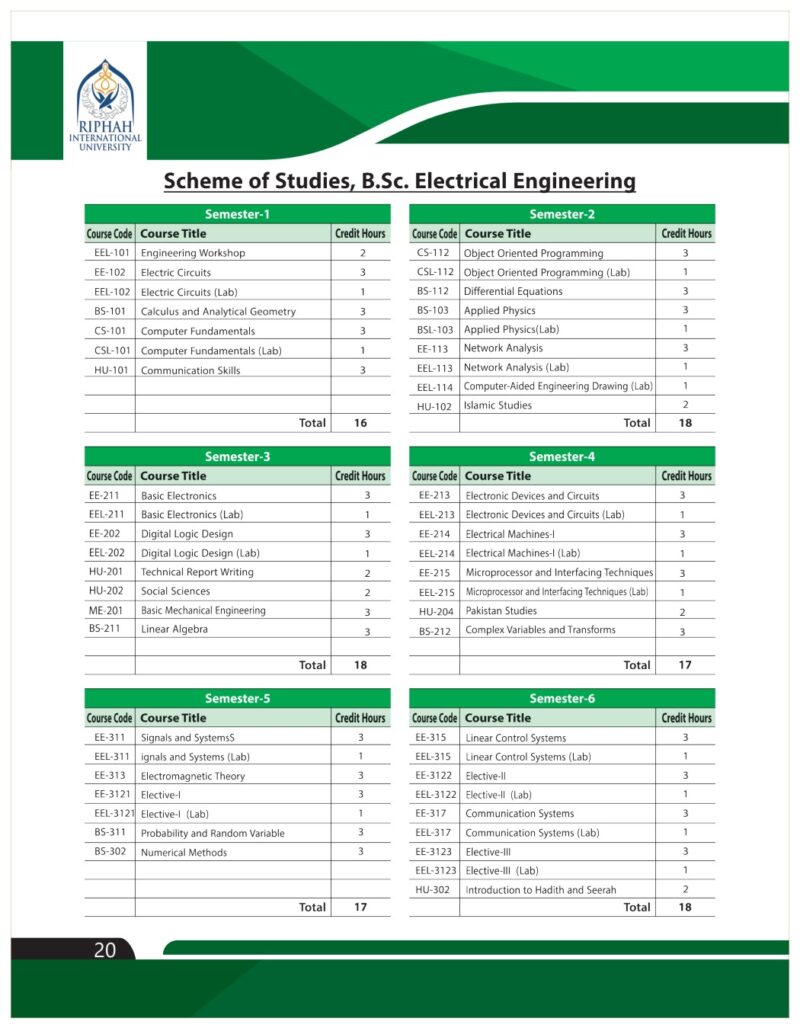
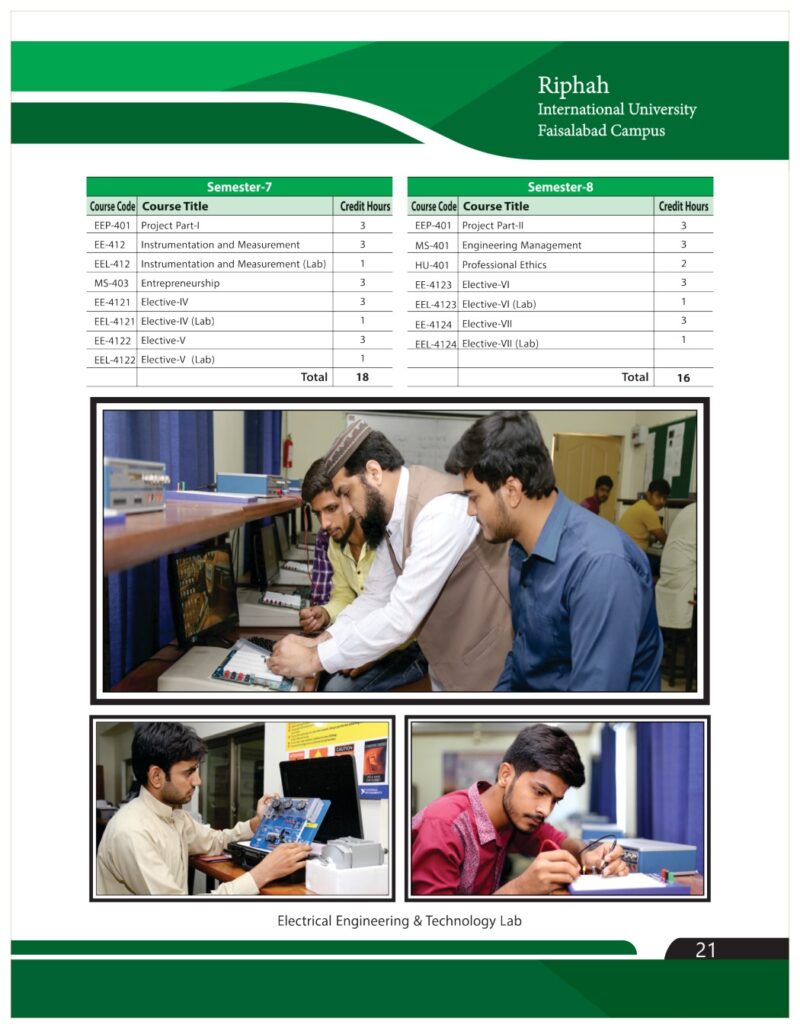
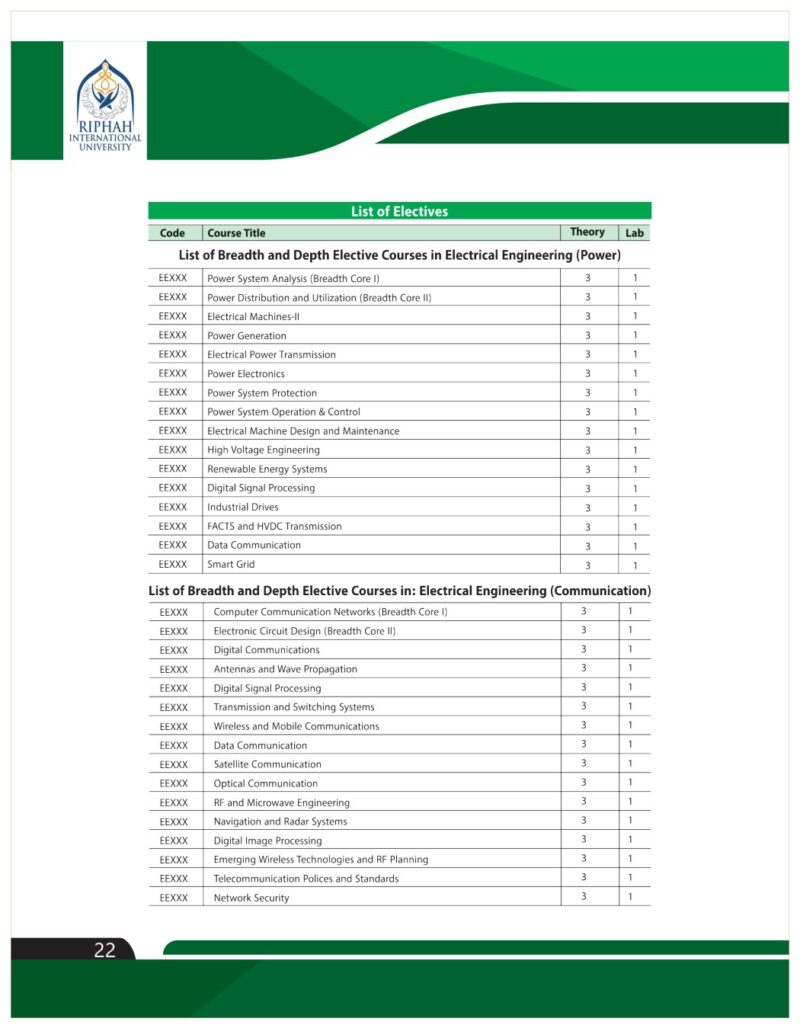
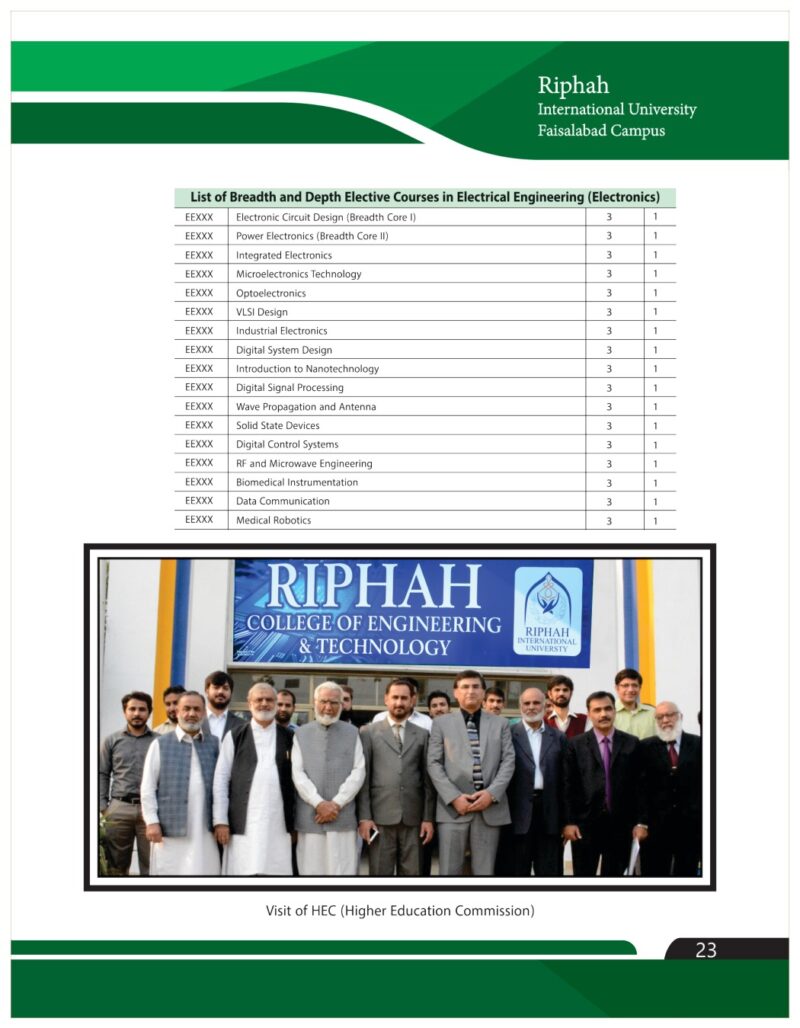
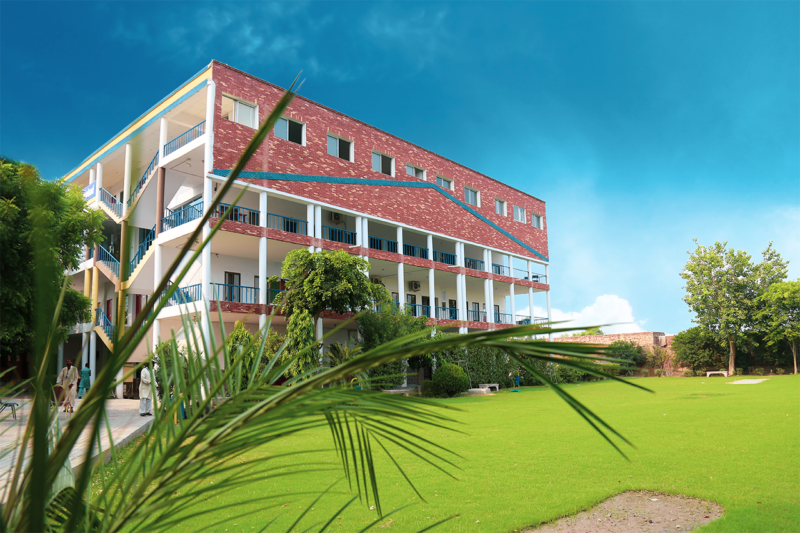
Our graduates are serving in various national and multi-national companies. Some have established themselves as successful entrepreneurs while others are continuing higher education in renowned national and international universities. We strive to follow the motto of quality teaching and productive research.